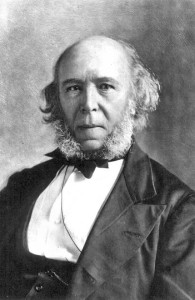Supporters of minimum wage laws are often hopelessly illiterate regarding basic laws of economics. In recent election cycles, however, advocates of minimum-wage hikes have won some huge “victories” in such cities as Seattle and San Francisco. The Seattle City Council, for example, imposed a $15-per-hour minimum wage on all employers in the city last year. …
Category: Minimum Wage Laws
Sep 08
Wages have nothing to do with miserliness or generosity
The brilliant economist John C. Goodman is out with another brilliant column. This one about the foolishness of minimum wage laws. See here. : To summarize: a firm that pays workers more than they are worth cannot survive because it cannot match the prices and the rate of return to investors of its rivals. A …
Jul 28
New study shows recent minimum-wage hikes have caused the loss of 700,000 jobs
More than a hundred peer-reviewed economic studies have established that raising (or imposing) a minimum wage is correlated with increased unemployment. The only studies purporting to show otherwise are those that occurred in unusual economic circumstances (such as in a “boom-town” situation where wages were naturally rising rapidly anyway). The strong correlation between minimum-wage laws …
Apr 01
Almost A Hundred Peer-Reviewed Studies Establish Correlations between Minimum-Wage Laws and Unemployment Rates
When politicians vote to impose or raise minimum wages, they put poor people out of work and INCREASE poverty. No one has ever calculated how many economic studies establish the correlation between minimum-wage laws and unemployment rates. But the number is in the many dozens and probably in the hundreds. Minimum wage laws have done …
Mar 17
BRITISH MINIMUM WAGE ACT OF 1773 DROVE THE BRITISH TEXTILE INDUSTRY OVERSEAS AND DROVE COUNTLESS BRITS INTO POVERTY
Herbert Spencer, one of the founders of sociology, pointed out in 1850 that the British Minimum Wage Act of 1773—passed due to pressure from English weavers who believed the law would help lift textile workers out of poverty—decimated the British textile industry only 20 years later. By 1793, “some four thousand looms would be brought …
- 1
- 2



